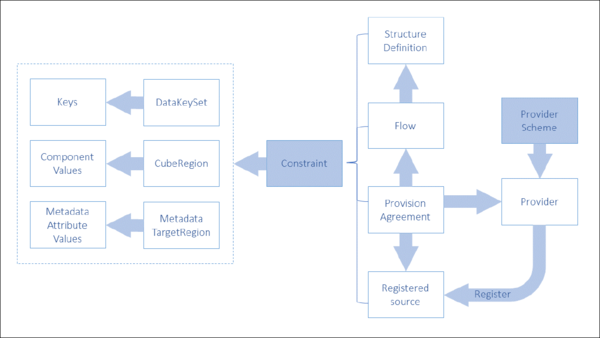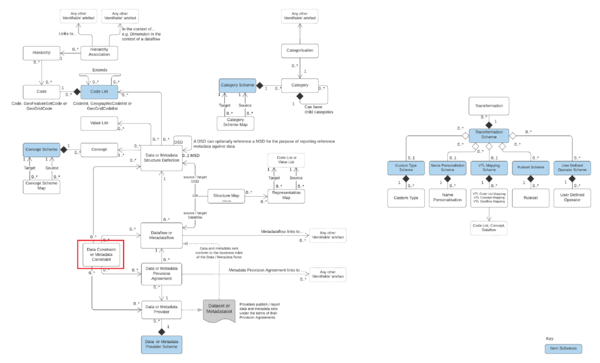Difference between revisions of "Constraint"
Jump to navigation
Jump to search
(→Structure Properties) |
(→Conventions) |
||
| Line 37: | Line 37: | ||
==Conventions== | ==Conventions== | ||
| − | ''' | + | '''Constraint IDs''' |
IDs are conventionally uppercase using underscores '_' as separators if required. Examples: | IDs are conventionally uppercase using underscores '_' as separators if required. Examples: | ||
Revision as of 05:56, 24 October 2023
Contents
Data Constraint or Metadata Constraint Overview
A SDMX Data or Metadata Constraint provides the ability to further restrict the allowable content of a Codelist in the context of a Data or Metadata Structure Definition a Data or Metadataflow, a Provision or Metadata Provision Agreement, or Data or Matadata Provider. Collectively these are termed as Constrainable Structures.
Structure Properties
| Structure Type | Standard SDMX Structural Metadata Artefact |
|---|---|
| Maintainable | Yes |
| Identifiable | Yes |
| Item Scheme | No |
| SDMX Information Model Versions | 3.0 |
| URN - DataConstraint namespace | urn:sdmx:org.sdmx.infomodel.datastructure.DataConstraint |
Context within the SDMX 3.0 Information Model
Usage
Constraints can be used to specify a subset of the theoretical content of data set or metadata set which can be derived from the specification of the DSD or MSD.
Each Constraint references a type of Structure and within that type many structures can be constrained.
Conventions
Constraint IDs IDs are conventionally uppercase using underscores '_' as separators if required. Examples:
| Agency | Concept Scheme ID | Description | SDMX-ML |
|---|---|---|---|
| ECB | EXR | Periodicity | SDMX-ML |

